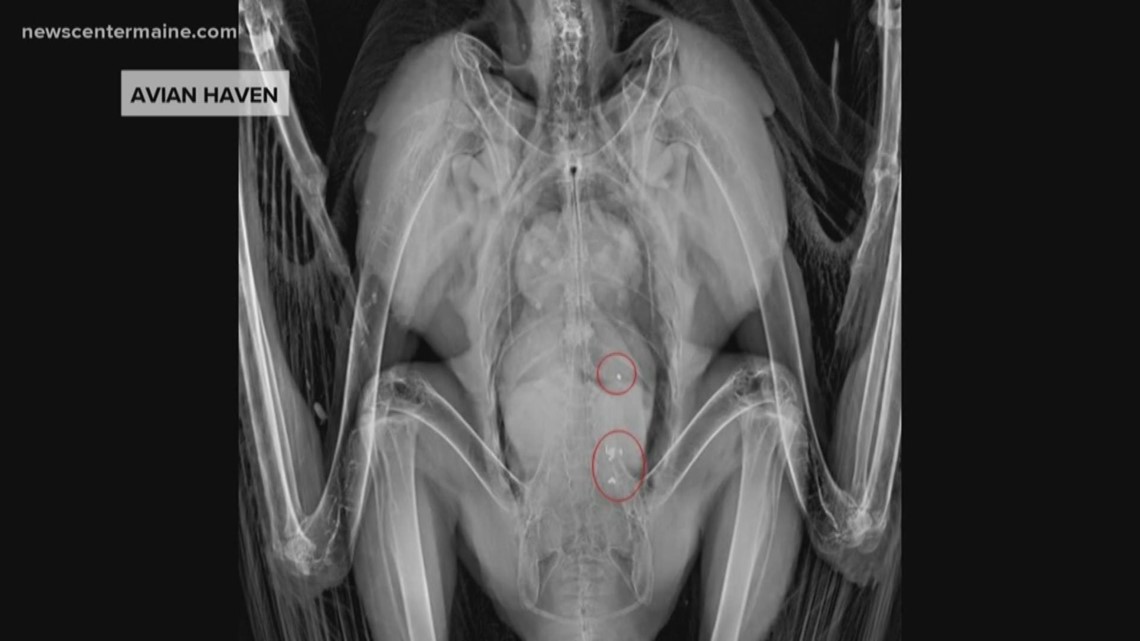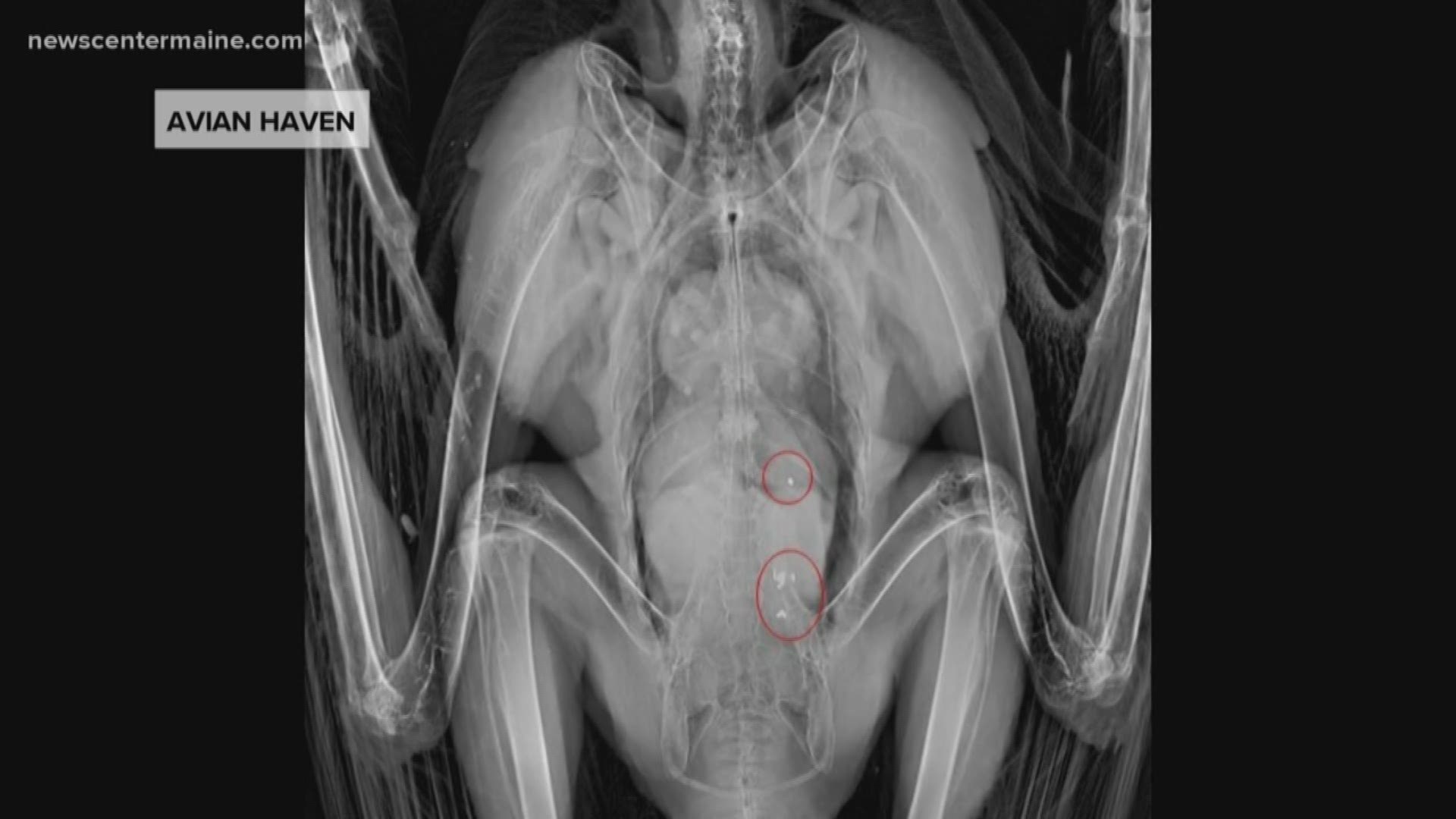AUGUSTA, Maine — A new state public awareness campaign is soon taking flight to encourage hunters 'get the lead out' when they hunt wildlife.
Eight eagles have died since the first of this year -- all of the deaths are believed to be linked to lead poisoning.
Wildlife experts believe the main source of the exposure is fragments of lead bullets found in the remains of deer and other game left in the woods from the previous hunting season, which ended in December.
In the first two weeks of 2020, five sick eagles were rescued from different locations throughout the state and brought to Avian Haven, a non-profit wild bird rehabilitation center in Freedom. Experts at the rehabilitation center say the birds had elevated levels of lead in their blood.
Two other eagles were put down and another two were found dead, including a female bald eagle discovered on the Island of Isleboro. An x-ray of the bird shows fragments of the lead ammunition.


Even a small sliver absorbed in the bird's gastrointestinal tract can become toxic. One eagle from North Haven is still being cared for at the shelter.
Inland Fisheries and Wildlife officials are now asking hunters to use non-lead ammunition such as copper bullets help reduce the threat.
"The fragments are so small, they only show up with an x-ray so really our message to hunters is to switch to non-lead ammunition," Nate Webb, the Director of Maine's Inland Fisheries and Wildlife Division, said.
"Most of the hunters I know are switching to copper you can still practice with lead but in the field," Will Lund, a hunter and the managing editor of the Maine Sportsman said.
Copper bullets are available online and in some sporting good stores. They are more expensive than lead bullets.
For information on lead free ammunition and wild game from the Maine's Inland Fisheries and Wildlife Division.
Information on alternatives to lead bullets click here

